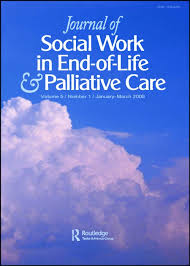Practice Considerations for Trauma-Informed Care at End of Life
Source: Journal of Social Work in End-of-Life & Palliative Care
Journal Article | September 2020

Many people with advanced illness experience trauma, including trauma associated with their diagnoses, and trauma-related symptoms can complicate their care. This article examines principles of trauma-informed care (TIC) in end-of-life care. It includes a case example of a patient with advanced illness to demonstrate how TIC can be practically applied with the goal of alleviating trauma-related symptoms.
Posted: February 2021